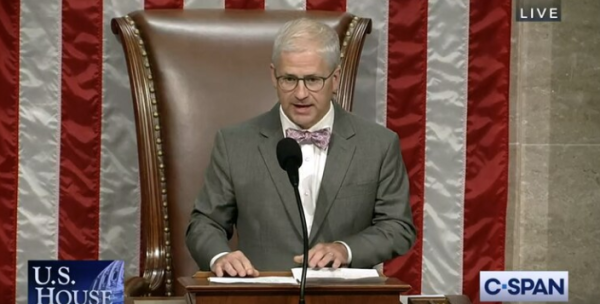
Yesterday, Greece “collected” from the markets 3.5 billion euros out of the 7 billion euros it plans to borrow for the whole of 2023. The Public Debt Management Agency (PDMA) was off to a start with a 10-year issue by choosing to go to the markets in January and not later as the upcoming national elections will put a temporary pause on Greece’s borrowing.
Even if cash reserves are at very satisfactory levels and Greece’s financing needs are at low levels, the country wants to present itself to markets by planning new issues by spring. Also, key to the decision for Greece to enter the markets now is that most of the eurozone countries have already borrowed, while in the next period large issues are expected, both from the European Union and from Spain.
Looking forward to the month of May
The strategy of the PDMA for this year is forward-looking, as it wants to anticipate the developments, both from the turbulences that may be caused to the market by the new interest rate increases by the ECB, as well as from the elections. The basic plan is to issue bonds before the elections, which are timed close to May.
The electoral process will be long-lasting since this year the new system of simple proportionality is activated, with estimates showing a second or even third round of elections in order to form a government.
The elections put a “pause” on borrowing and thus the estimates indicate that the next issue of the Greek public will be carried out by March. According to analysts, the next issue can go public in the second quarter, possibly through a five-year bond to raise the amount of 2-2.5 billion euros. It is estimated that towards the third quarter it may proceed to issue a long-term bond. During the second half of the year, Greece may attempt to issue a “green” bond.
Offers exceeded 22 billion.
Investors sent a strong message of confidence during yesterday’s issuance of a 10-year bond, where the Greek government “raised” 3.5 billion euros from an initial target of 2.5 to 3 billion euros. The Greek bond was in demand and the over-covering was impressive with offers exceeding 22 billion and reduced interest rate below 4.4%.
The books opened yesterday with the initial guidance set at Mid Swaps + 175 basis points, at approximately 4.5%, while the yield on the existing 10-year Greek bond was at 4.14%.
Here comes Ftich
This successful exit sends a positive signal for the prospects of recovering the investment grade in 2023. Also, Greece’s gross financing needs will remain well below 15% in the next period. In fact, Fitch is the first rating agency for this year to make an appointment with Greece on January 27.
Fitch rates the country BB, two notches below investment grade, and it is possible that it will make a positive move at the end of the month. Moody’s remains the most “strict” among the houses, keeping Greece three places below the investment grade, at the Ba3 level.
Finally, Moody’s in a recent report gives special importance to the de-escalation of the public debt. It emphasizes that Greece, Ireland, Cyprus, Portugal, Croatia are expected to record in 2023, a lower level of debt compared to 2019. The reduction of Greek debt will be one of the highest worldwide and by 18 percentage points, reaching to 162.9%.
Latest News

Airbnb: Greece’s Short-Term Rentals Dip in March Amid Easter Shift
Data from analytics firm AirDNA shows that average occupancy for short-term rentals dropped to 45% in March, down from 49% the same month last year.

Easter Week in Greece: Holy Friday in Orthodoxy Today
At the Vespers service on Friday evening the image of Christ is removed from the Cross and wrapped in a white cloth

Meloni and Trump Meet in Washington, Vow to Strengthen Western Ties
“I am 100% sure there will be no problems reaching a deal on tariffs with the EU—none whatsoever,” Trump stressed.

ECB Cuts Interest Rates by 25 Basis Points in Expected Move
The ECB’s Governing Council opted to lower the deposit facility rate—the benchmark for signaling monetary policy direction—citing an updated assessment of inflation prospects, the dynamics of underlying inflation, and the strength of monetary policy transmission.

Current Account Deficit Fell by €573.2ml Feb. 2025: BoG
The improvement of Greece’s current account was mainly attributed to a more robust balance of goods and, to a lesser extent, an improved primary income account

Hellenic Food Authority Issues Food Safety Tips for Easter
Food safety tips on how to make sure your lamb has been properly inspected and your eggs stay fresh.

Greek Kiwifruit Exports Smash 200,000-Ton Mark, Setting New Record
According to data by the Association of Greek Fruit, Vegetable and Juice Exporters, Incofruit Hellas, between September 1, 2024, and April 17, 2025, kiwifruit exports increased by 14.2%.

Easter Tourism Boom: Greece Sees 18.3% Surge in Hotel Bookings
Among foreign markets, Israel has emerged as the biggest growth driver, with hotel bookings more than doubling—up 178.5% year-on-year.

Greece to Launch Fast-Track Tender for Offshore Hydrocarbon Exploration
Last week, Papastavrou signed the acceptance of interest for the two Cretan blocks, while similar decisions regarding the two Ionian Sea blocks were signed by his predecessor

American-Hellenic Chamber of Commerce to Open Washington D.C. Branch
AmCham's new office aims aims to deepen U.S.-Greece economic ties and promote investment and innovation between the two countries







![Πλημμύρες: Σημειώθηκαν σε επίπεδα ρεκόρ στην Ευρώπη το 2024 [γράφημα]](https://www.ot.gr/wp-content/uploads/2025/04/FLOOD_HUNGRY-90x90.jpg)




![Airbnb: Πτωτικά κινήθηκε η ζήτηση τον Μάρτιο – Τι δείχνουν τα στοιχεία [γράφημα]](https://www.ot.gr/wp-content/uploads/2024/07/airbnb-gba8e58468_1280-1-90x90.jpg)

























![Airbnb: Πτωτικά κινήθηκε η ζήτηση τον Μάρτιο – Τι δείχνουν τα στοιχεία [γράφημα]](https://www.ot.gr/wp-content/uploads/2024/07/airbnb-gba8e58468_1280-1-600x500.jpg)


 Αριθμός Πιστοποίησης
Αριθμός Πιστοποίησης